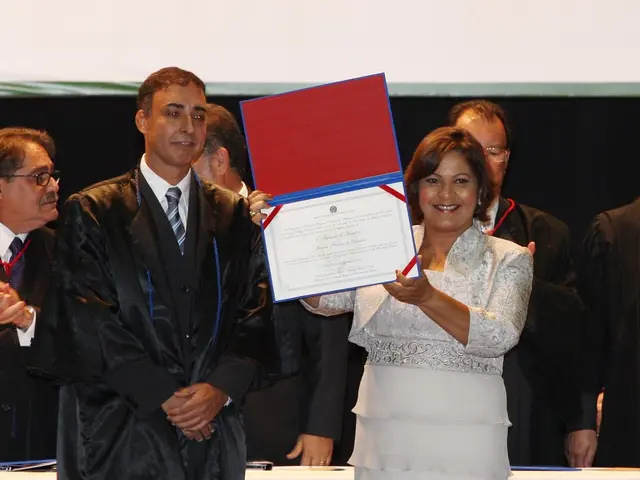Xbox Needs to Embrace the Unconventional to Stay Vital
In a surprising turn of events, former director of the Xbox Advanced Technology Group and executive producer for Microsoft Games Studios, Laura Fryer, has expressed her concerns about the current state of Xbox. Fryer, a long-time Xbox collaborator and industry veteran, believes that Microsoft's Xbox division is moving away from consoles and instead prioritising service models like Xbox Game Pass and cross-platform accessibility over hardware innovation.
Fryer's critique highlights a chaotic strategy, a declining focus on hardware, a lack of consumer incentive, and a shift towards services and open platforms as potential reasons for Xbox's hardware struggles. She described Microsoft's hardware ambitions and recent decisions as chaotic, which undermines confidence in Xbox hardware's future. Fryer stated that Xbox "has no desire or literally can’t ship hardware anymore," implying that Microsoft may be exiting the hardware business gradually.
This shift in strategy, Fryer suggests, is reflected in the Xbox Series S and X consoles' underperformance compared to the PlayStation 5. Although not explicitly stated, the Xbox Series S and X have generally lagged behind the PS5 in sales and market enthusiasm. Microsoft's pivot toward services and away from console hardware likely contributes to this performance gap.
However, Fryer's criticism comes in response to the Xbox and Asus partnership, which involves the release of the ROG Xbox Ally handheld device. This collaboration, where Asus modifies its existing ROG Ally X handheld PCs and adds Xbox software, could be a sign of hardware being a secondary or dying priority.
Fryer's comments echo the criticism that Xbox has been facing, with the company being criticised for becoming boring, which may have contributed to its struggles. The Xbox Series X and S consoles, for instance, have been criticised for their design that lacks a console feel. In contrast, Sony's PS5 design is praised for making buyers feel like they are buying a console.
Despite these challenges, the continued demand for consoles indicates that there is still an opportunity for Xbox to make significant improvements. The success of the Nintendo Switch 2 suggests that people still want consoles and that Xbox could learn from Nintendo's gamble with redefining its hardware and pivoting towards games.
In the past, Xbox had opportunities to explore new directions in hardware functionality but did not. With the ball now in Microsoft's court, the question remains whether they have the will to make a significant shift for Xbox, to avoid feeling like a PC and to make its console feel experiential, with a focus on exclusive titles that are strange and magnetic.
[1] VentureBeat. (2022, January 24). Laura Fryer: Xbox is moving away from consoles and into services. VentureBeat. https://venturebeat.com/2022/01/24/laura-fryer-xbox-is-moving-away-from-consoles-and-into-services/
[2] GamesIndustry.biz. (2022, January 24). Xbox is moving away from consoles and into services, claims former Xbox exec. GamesIndustry.biz. https://www.gamesindustry.biz/articles/2022-01-24-xbox-is-moving-away-from-consoles-and-into-services-claims-former-xbox-exec
[3] The Verge. (2022, January 24). Xbox is moving away from consoles and into services, says former Xbox executive. The Verge. https://www.theverge.com/2022/1/24/22887404/xbox-moving-away-from-consoles-services-laura-fryer-exclusive-interview
- Fryer's concerns about Xbox's future suggest a potential shift from the traditional console model to a focus on tech services, suggesting a decline in hardware innovation for the brand.
- The underperformance of the Xbox Series S and X compared to the PlayStation 5, coupled with Microsoft's pivot towards services, indicates a possible move away from tech gadget and hardware manufacturing.
- As Microsoft collaborates with Asus to release the ROG Xbox Ally handheld device, it may signal a secondary or dying priority for hardware development within Xbox, aligning with Fryer's assertion of a move towards services and open platforms.




